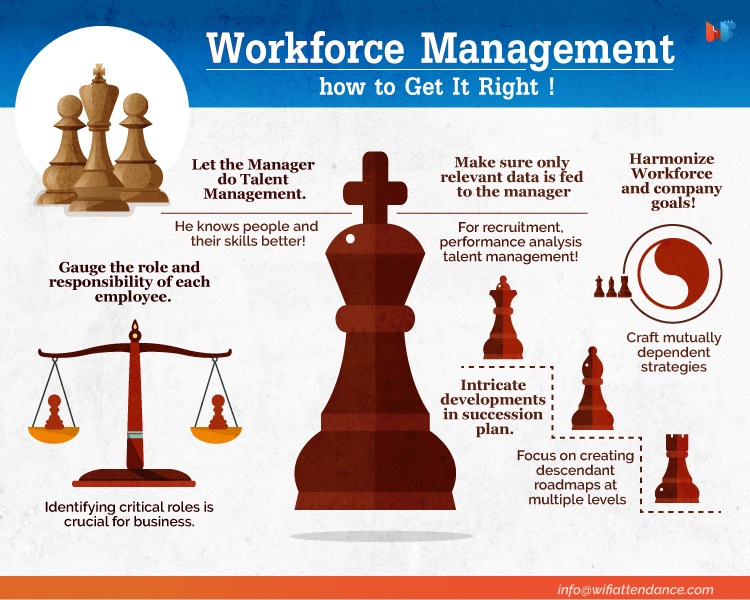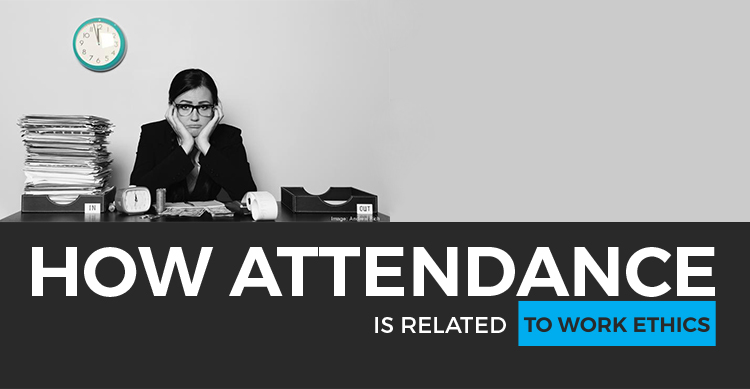Beyond your education, your designation, and your experience, a work relationship is also career-defining factor. Despite all the professional guidelines, a workplace is ultimately about many people working together.
So, we all make an image of the people around us and they do the same about us. Your relationship with your colleagues, seniors, and juniors decides your productivity, promotional opportunities, goal achievements, pay increase and job satisfaction as well.
You can’t be too reserved or too interfering. There has to be a balance in your work relationships, which comes with effective interpersonal skills.
Read Also: How to Build a Better Company Culture
What if you avoid building work relationships?
Not working on your work relationships burns a lot of bridges professionally. A person, who simply uses his designation to put pressure on others, doesn’t earn any respectable place in a company.
Putting blame on others without offering support or a solution is another problem. These kinds of habits make you an unwanted person in your office.
People avoid working or collaborating with you on projects. This immediately impacts productivity. And eventually, you can feel left out and not appreciated in your company.
So, the question is- how to build great work relationships to obtain a satisfactory work environment?
Ways to build great work relationships
The core basis of building a great work relationship is your ability to bring positivity even in a negative situation.
Your approach to working with colleagues should be empowering and motivating for others. That is how you can unify everybody working around you.
To help with that, here are some great ways of building great work relationships:
1. Always present a problem with a potential solution
No one likes a person who only points out issues without giving any effort to solving them. You must have seen such people in your work environment.
They always know what the problems are with a team, a project, a deadline or anything else. But they never use their abilities to find even a potential solution.
This one habit can make you a bundle of negative energy at work. Your co-workers and seniors will start neglecting your point of views. This decreases professional reputation and harms future opportunities in the company.
Every time you feel the responsibility to point out an issue, present it with a clear solution. Put genuine efforts into finding actionable ways to resolve that problem. This will enhance your importance in the eyes of your bosses and co-workers.
2. Never blame publicly
When you work in a team, projects face some problems. So, you try to find the source of that problem. Sometimes, it is the system that creates an issue, while in other situations it is a colleague.
Identifying the source of a problem is necessary. However, so many people do this just to put the blame on others to hide their own mistakes.
Even if you have genuinely found the right person to blame, it would be wrong to publicly announce their mistakes. You need to make sure that only the most relevant people know about the mistakes of a colleague.
If possible, you should try to have a one-on-one with the person in a private meeting. This way, you can present the facts and also offer your support to help that person fix the problem.
Putting blames and calling out colleagues publicly create a lot of enemies in the work environment. And you don’t want that.
The more allies, the better chances you get to grow with the support of others. You can’t be a lone wolf when there are a hundred wolves working in a pack.
3. Use your verbal/nonverbal communication capabilities wisely
Using a sarcastic tone when talking to certain employees, looking away when a junior is trying to convey his or her point of view – These are negative communication signals that ruin your reputation.
We all act like a radar when it comes to reading verbal as well as nonverbal communication signals.
If a colleague hears a sarcastic tone in your voice, he might start talking bad things about you to others. If a junior feels you don’t care about his or her point of view, you won’t be able to motivate them to maximize their work efforts.
Shouting and giving an angry face to people are other two big communication issues at the workplace. You should know that there is absolutely no right time to scream at people at work.
If your personality is all about dignity and respecting other people, you won’t feel the need to scream in any situation.
4. Be a trustworthy team player
From a football field to an organization, a team runs smoothly with mutual trust. Your team members should be able to trust you. But that won’t happen if you constantly blindside your co-workers, reporting staff or your boss.
Very often, employees hide facts knowingly or unknowingly, which can put other team members in a bad spot. A work system is about a collective resolution of problems to achieve a common goal.
You need to understand and apply this in daily work approach. Always make sure that every relevant persongets information directly from you. These relevant people are everyone involved in a work system.
If you are transparent in your work approach, co-workers will trust you and bosses will believe in what you say. This is key to building a reputed image in your workplace.
5. Commit to what you can actually deliver
Work in any organization is interconnected. Your failure to deliver begins a chain reaction of failures in multiple departments.
Which is why you have to be very clear and practical when giving commitments. Setting deadlines is not a formality. If you constantly fail to deliver work on-time, it puts you in a bad light in front of your co-workers and seniors.
They eventually stop believing in your capabilities, even if you deliver the best work.
For all these reasons, you have to choose your commitments wisely. Never take a responsibility you can’t fulfill. And if you take such a responsibility, present the potential delays or issues in advance.
This is way better than not delivering the work and harming the stream of work flow.
When you get responsible about your commitments, it doubles the importance of your work. It is true that your ability to meet deadlines can get interrupted by other people. Which is why you need to factor in all the aspects in the first place and choose a deadline you can follow.

6. Share your credit for contributions, ideas, and accomplishments
Do you remember the time when you accomplished a work goal for your company?! Now, try and remember all the help you received directly or indirectly to achieve that goal.
If you have been managing a team, think about the ideas you created only because of the inputs offered by your team members.
Realizing the impact of co-workers and juniors in your accomplishments the best positive change you can bring. People think that sharing credit reduces self-importance. But no. It actually increases your value in the eyes of your bosses and colleagues.
Every time you are presented with a credit, take some time to think about everyone involved. Who gave you a small idea?! Who contributed to the process of working on that idea?!
Who supported your ideas till the accomplishment of your goal?! Think about all these questions, recognize and thank people.
Even a simple thank you creates a big impact in motivating people who work with you. And your relationship gets stronger, which helps in accomplishing more goals.
7. Help colleagues and juniors improve their skills
Every individual brings something to the table in a company. The work culture in a company should allow individuals to improve their talents, experience, and skills.
This happens when employees start helping each other. It is not just the manager who can motivate and encourage employees. One employee can also help another employee find the true potential of talents.
When one employee grows, it improves the capacity of the whole team, which boosts the growth of the whole organization. Your help in this process puts you in a positive light in front of your colleagues, juniors, and seniors as well.
Noticing talents, giving genuine compliments and praising the efforts should be an ongoing habit in your work life. These are really simple things, but they have a big impact on your relationship with everyone who comes in contact with you at work.
8. Keep your work relationship expectations in check
You responsibly manage your work relationships and expect the same from others. But others won’t necessarily start behaving responsibly right away.
Your behavior brings a gradual change in work relationships. Every individual is different, so you can’t expect them all to behave the same way.
Instead, you should keep your expectations in check when it comes to how other people behave around you at workplace. Otherwise, you will end up feeling frustrated or lose your ability to stay calm and responsible.
That being said, it is uttermost important that you convey your expectations in a respectable manner. Tell what you expect from your co-workers, juniors, and seniors as well.
Don’t give too high expectations to your co-workers. Give small suggestions or request, so your colleagues can gradually improve their relationship building abilities.
9. Initiate positive conversations
You build relationships when you start knowing other people at workplace personally and professionally.
It happens gradually, but you can make efforts by initiating positive conversations every time you come in contact with an individual or a group of co-workers.
A positive professional conversation can take place during a meeting. Similarly, you can have a personal one-on-one with a co-worker during lunch breaks. The conversation should be positive and shouldn’t be forced at all.
If you are new at your workplace, initiate conversations by asking questions. You need to find a window of opportunity when a colleague is open to conversation.
This means you can’t bother when someone is busy. Also, the topic of conversations depends on how closely you know that co-worker. Just ask yourself how comfortable you feel starting a conversation. This way, you will find the safest way to initiate conversations.
Regular interaction allows you to know the point of views and personality traits of others. This gives a framework for building work relationships.
10. Listen and observe
Apart from talking, you also need to actually listen and observe. This process should involve people working in your company and the organization as a whole.
Listening and observing allow a chance to understand work culture as well as the personality traits of co-workers, juniors, and bosses.
Understanding other people’s point of views let your brain design a strategy on how to work with each individual. The process is automatic usually, but you need to take control in order to avoid being judgmental.
Getting control of your observations is about respecting the point of views and evaluating your own personality at the same time.
Read Also: How to Improve a Toxic Work Environment
Conclusion
All in all, you need the mentioned ten habits in your professional life to build great work relationships. The process is easier said than done, but you can achieve this goal with determination and self-assessment.
Be truthful to yourself and understand the complexity of working with hundreds of people.
Hopefully, this article has helped you gain some great ideas to improve your work relationships.





